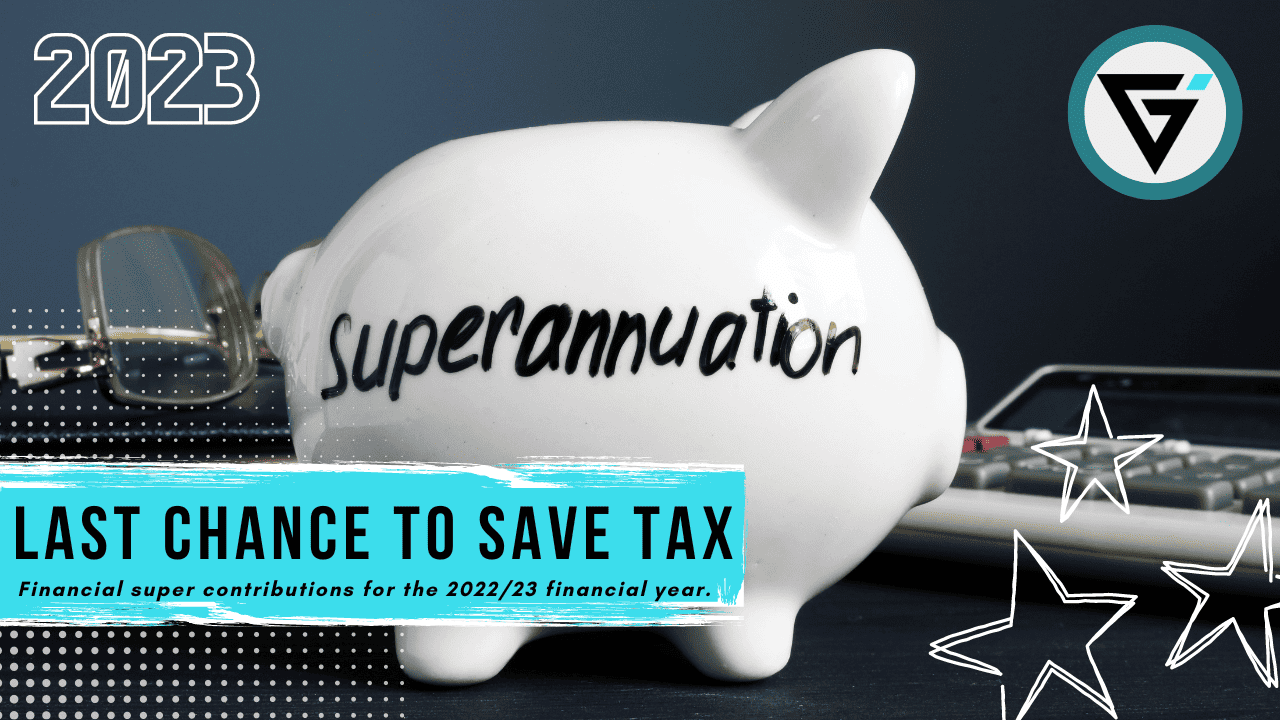With 2020 coming to an end, I thought I would spend a little time reflecting on a year which can only be described as a hurricane. It came, hit us with the unexpected and is now leaving us for a big clean up in 2021. But with such an eventful year came a lot of life lessons.
It was Winston Churchill that once said “never waste a good crisis” and there are key take-aways from 2020 which we can learn from. So today, as we farewell 2020, I want to share with you some of the lessons that I have learned this year.
Don’t sell in panic
Turning first to the stock market, this is a lesson that I actually already knew and implemented throughout the pandemic, but I am going to reiterate it again because it is highly important. That is, don’t sell in panic.
Many people sold down their super and shareholdings in March this year when the fear was at an all-time high. Businesses were being forced to shut due to government regulations, consumers were madly buying toilet paper and it appeared the world was ending. Naturally, this fear led to rash decisions being made with regard to people’s investments.
If you held a diversified bucket of Australian stocks and sold your investments at the bottom of the market in March, you would have crystallised a loss of approximately 32% from the start of January. What’s even worse than that is, if you didn’t buy back in, you would have missed the recovery.
A decision to sell leads to an equally hard decision as to when to buy back in. If you base your investment decisions on quantitative analysis, then there is a good chance that you would still be sitting in cash because market valuations are still very high compared with historical standards. But, as a result, you would have missed out on a quick recovery.
Since the lows in March, the Australian stock market is up around 46% and the US stock market is up a whopping 66%! This means, if you had done nothing and continued to hold your Australian stocks from the beginning of January to now, your portfolio would be down roughly 0.6% but the dividends would have more than made up for this. Your US shares would be in the money by roughly 15%. Put simply, it’s very hard to time the market!
Timing the market is a risky game and while I would encourage you to make small tweaks to your portfolio, which are in line with your outlook, only a cowboy goes all in or all out. For clients, I invested an additional 10% into the market during March. I wanted to do an additional 10% but was waiting for the market to drop a little further and it never did. But not once did I sell out of growth assets into defensives.
The old saying, buy low and sell high, sounds easy in theory but actually implementing it can be very difficult. When the media is telling you the world is in meltdown, and you’re buying stocks, you definitely start questioning your own sanity.
Cycles are quicker.
One element of the market crash that has surprised me is the sheer velocity of the market movements. Not so much on the downside but more on the upside.
When markets are in free fall, they typically fall pretty hard and fast. This is why they say the share market takes the stairs up and the elevator down. In this case, the crash took roughly 1 month from the 20th February to the bottom of the cycle on March 23rd. During that period there was a day when the share market fluctuated 12% in a single day!
What surprised me most was the share market recovery. After the crash I was anticipating a U-shaped recovery. In fact, I put a video out in March saying that I put a 20% chance on a V-shaped recovery, a 70% chance of a U-shaped recovery and a 10% chance of an L-shaped recovery. Turns out, the recovery (so far) has basically been a V-shape which is amazing given there are still so many global concerns.
The ability for the market to fall and recover so quickly, and have day movements of 12%, I believe is a result of easier access to trading accounts. Anyone can trade stocks, using your phone (which now days is glued to your hand) at a very low brokerage cost. So it’s not just the institutional investors that can push the market around, the retail investors can band together and do the same.
Having shorter market cycles means that if you want to make the most of an opportunity in the stock market, you better get onto it quickly because otherwise you may miss out.
Don’t fight central banks and government
This stock market crash has seen unprecedented fiscal and monetary support from governments and central banks around the world. Not to mention an unprecedented use of the word unprecedented.
The Australian government pumped $507 billion via way of stimulus and the US makes this seem like pocket change with their $6.5 trillion in stimulus. And they are not done yet, there are further stimulus measures in the pipeline with another $900 billion in the US just announced!
The use of such enormous amounts of stimulus really is starting to test some of the more extreme economic theories out there such as modern monetary theory and universal basic income. The idea that printing money will bring about uncontrollable inflation seems like a myth at the moment because governments are desperately trying to raise inflation with no success.
So with inflation a non-issue (for now) and the governments and central banks doing “whatever it takes”, this does de-risk investing to a certain extent. You can watch asset prices fall and if they fall too far there is a very good chance that stimulus measures will intervene to bring it back up again.
This has almost turned bad news into good news. Ordinarily, the release of bad economic data like a drop in GDP would hurt asset prices. Now, that bad news means there is a chance for more stimulus and therefore markets have been known to respond positively to bad news. Stimulus has become like cocaine for stock markets – investors love it and cannot wait for their next hit. Our world has gone a little mad!
But the most important takeaway here is that, as an investor, you should be very careful about betting against the government and central banks. If they want something to happen, they basically have a limitless balance sheet in order to achieve their target.
Emergency funds are important
Nothing like a good old fashioned global lockdown to remind us of the importance of an emergency fund. Here in Australia, our unemployment rate hit 7.5% in July and when you lose your job, it’s a very scary thing!
But something that you can do to ease this stress is to have an emergency fund. I typically recommend an emergency fund equal to 3 months of your gross income. This way, if you lose your job you can still meet mortgage repayments and put food on the table while you look for a new job and assess your government support options.
Sometimes it can be easy to overlook the importance of an emergency fund because it really is very basic. Also, having a large lump sum of money sitting in cash, not earning much, can seem like an opportunity wasted. But events like this remind us just how important this step in is the financial process.
People don’t care enough about super
Most of the government’s response to COVID-19 has been pretty good. They managed to get us out of a recession by year’s end, unemployment figures are dropping, the stock market is up and even housing prices in most states are on the rise. Not a bad outcome for policies that were rolled out quickly in the heat of the moment.
But one policy I fundamentally disagree with was the ability to withdraw money from your super.
Over $35 billion has been withdrawn from superannuation under the COVID-19 early release scheme and I think this is part of the reason why cars are selling like hotcakes and, the latest I heard, there is now a wait list to buy a jet ski. I’m guessing a lot of this was funded from would be retirement savings.
Sure, all this consumption is good for the economy but this is very short-term thinking. By losing so much from the superannuation industry there is going to be a lot of people with a lot less money at retirement. Just remember if you invest $20,000 today, and can earn a steady 6% per annum, that $20,000 is worth $120,452 in 30 years’ time.
But obviously a lot of people don’t think the same way as I do and they would prefer the short-term satisfaction over the long-term term wealth. I’m not sure if this is because people don’t understand the superannuation system, or maybe they don’t trust the super system, but either way it has opened my eyes further to the general lack of importance placed on our primary retirement vehicle.
Assets can trade at negative valuations
This one shocked me the most. I knew that asset prices could drop and essentially be worthless, but to trade at a negative price is a whole new kettle of fish and we saw this with the oil price.
Back in April, oil traded at a negative price for the first time in history. This meant that oil producers were essentially paying people to take their oil because they don’t have the storage capacity to hold it themselves and turning off the pumps would be too expensive.
As an investor, if you bought a futures contract for oil, not only would your future contract be worthless when the price went negative but, worse than that, you could actually owe money.
This happened to a day trader who bought 212 future contracts for oil at what he thought was $US0.01 but turns out oil was trading at -$US3.70. As a result, he was then told he owes $9 million dollars. However, he was lucky and got off the hook because the platform he was using could not display negative prices and therefore the onus for this mistake was put back on the platform. But this could have made him bankrupt.
What lesson did I learn from the negative oil price? There are two. Firstly, trading commodities is a very risky game and not something that I tend to get involved with. Secondly, just because something seems cheap doesn’t mean they can’t get cheaper. At the start of the year I wouldn’t have believed oil could be worthless in 2020 but then to trade at a negative price, that thought didn’t even cross my mind. So be very careful with your investments, particularly when trading a commodity.
Final thoughts
Overall, 2020 has been a year we won’t forget. It has potentially changed the way we live and work forever. But of all the lessons I have learned in 2020 my key takeaway would be this – when it comes to building wealth the most important ingredient is to have a plan.
As time goes on, there will be events that we encounter which will try to throw us off our plan and make us do crazy things. But keep focus on the long-term goal. You can’t control what happens with stock prices, the economy, viruses, etc. but you can control how you react to these events so don’t make short-term rash decisions which is counteractive to your long-term plan.










